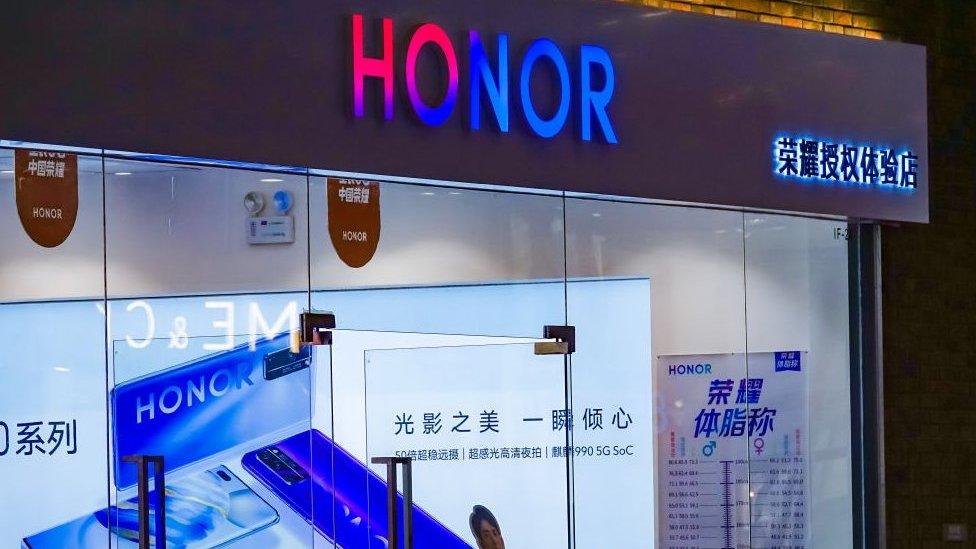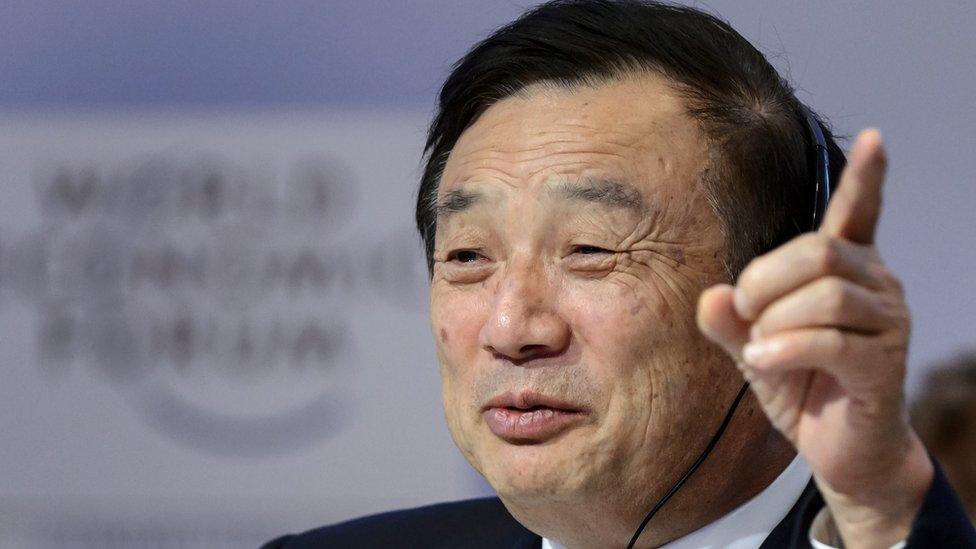Huawei sells youth brand over tech restrictions
- Published

Chinese smartphone maker Huawei is selling its youth-focused budget brand Honor.
Huawei said Honor had been under "tremendous pressure" due to "a persistent unavailability of technical elements".
US government sanctions have restricted supplies to Huawei on the grounds that the firm is a national security threat.
Huawei said it would not hold any shares or be involved in managing the new Honor company.
"This sale will help Honor's channel sellers and suppliers make it through this difficult time," the Chinese telecommunications giant said in a statement.
Huawei said it will sell Honor to Shenzhen Zhixin New Information Technology, a new company set up for the acquisition.
The company is a consortium of more than 30 agents and dealers of the Honor brand, and according to Chinese media, also includes the State-backed Shenzhen Smart City Technology Development Group.
Huawei gave no indication of the sale price.
Chip wars: The US v China

Bravado dented
By Karishma Vaswani, Asia Business Correspondent
When the US first targeted Huawei, as part of the broader US China trade war, founder Ren Zhengfei told me the 'US cannot crush us'
Since then though, that defiance has been deflated.
Honor's phones rely heavily on Huawei technology, so selling the unit off is a sensible and strategic business decision.
But that doesn't mean it wouldn't have hurt both Huawei's bottomline, and its sense of bravado.
US restrictions placed on US firms selling equipment to Huawei has made it next to impossible for the Chinese firm to get access to much needed US tech - in particular chips that go into its smartphones.
Some analysts say the reason why Huawei is selling its Honor business is to raise enough cash so that it can invest further in its own chip-making technology, which would in theory help it to become more self reliant, and depend less on US tech.
But getting to that stage takes time, and in the interim there are competitors lining up to take Huawei's place on the global smartphone stage.

Equipment restrictions
The Trump administration has increased pressure on Huawei over the past few years, claiming the company is a threat to national security - a claim which Huawei consistently denies.
The US department of commerce now requires foreign semiconductor companies to first get a permit before selling chips to Huawei if they are developed or produced using US technology.
Although Huawei has stockpiled microchips in an effort to survive the restrictions, it said this latest move was an attempt to salvage a brand that has struggled as a result of US policies.
"This move has been made by Honor's industry chain to ensure its own survival," Huawei said.
Huawei established the youth-focused brand in 2013, offering phones in the lower and middle price ranges.
Honor ships 70 million units annually, according to Huawei.
It sells smartphones through its own websites and third-party retailers in China. It also sells its phones in Southeast Asia and Europe
- Published18 February 2019
